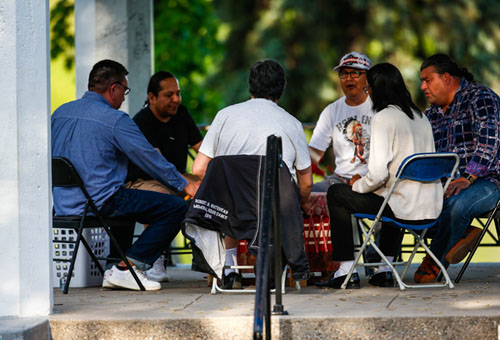


When working in the addiction field, we frequently encounter clients who appear unmotivated to change. During this webinar, we will explore the concept of motivation and provide you with practical skills to develop intrinsic motivation toward long-term behavior change.

Build your own live instructor led course by combining modules (2 hours each) to produce a full day of training or spread out training sessions over several days. Completely customizable based upon your specific needs. Eleven different modules to choose from.

Implementation science is the collective study of practices and methods that significantly improve the successful implementation of new programs and practices. During this webinar, we will explore the fundamental practices and research supporting implementation science and we will learn about programs that are successfully improving services and outcomes using these best practices in the criminal justice and addiction fields.

Previous webinars have laid the foundation regarding the impact of addiction on the brain and ways to support tribal members’ journeys out of addiction. Join this session for a facilitated discussion and open forum with subject matter experts who will answer your practical questions regarding working with the impacts of addiction on the brain. Prior to the session, we will gather feedback from you about what you would like to learn about the topic from the experts. Your participation is encouraged during the session, and additional questions will be taken at that time.

Join us for a Q&A session that provides an open forum to answer practical questions regarding working with the clients who appear unmotivated to change.

Previous webinars have laid the foundation regarding the impact of addiction on the brain, understanding mental health symptoms and what tribal service providers and criminal justice professionals can do to support tribal members’ journeys out of addiction. Join this session for a facilitated discussion and open forum with subject matter experts who will answer your practical questions regarding working with individuals presenting with co-occurring disorder diagnoses (comorbidity). Prior to the session, we will gather feedback from you about what you would like to learn about the topic from the experts. Your participation is encouraged during the session, and additional questions will be taken at that time.

View the facilitated discussion and open forum with subject matter experts from the live webinar on July 9, 2024. Experts answered practical questions regarding working with clients who are experiencing substance use disorder or co-occurring disorders as they are aiming to successfully reenter and reintegrate into their tribal community post-treatment or post-incarceration.

Previous webinars have set the stage for successful reentry and reintegration post-treatment and post-incarceration and provided initial strategies to increase access to culturally competent reentry services, including substance use disorder and mental health treatment. Join this session for a facilitated discussion and open forum with subject matter experts who will answer your practical questions regarding working with alternatives to incarceration and benefits of peer supports and mentorship programs during reentry.

Our Native communities suffer from high rates of fatherlessness. One of the contributing factors to fatherlessness is addiction. Join this Ask the Expert Session for a facilitated discussion and open forum with subject matter experts who will answer your practical questions regarding fathers struggling with addiction and how fatherhood programming can provide support for recovery. Prior to the session, we will gather feedback from you about what you would like to learn about the topic from the experts. Your participation is encouraged during the session, and additional questions will be taken at that time.

Review stress factors, the toxic stress of poverty, the correlation between stress and alcohol and substance abuse, and the protective nature of community on stress resilience. Discuss the generational impact on stress resilience. Explore the predictive quality of social and community support on building stress resilience and stress management and reduction strategies.
